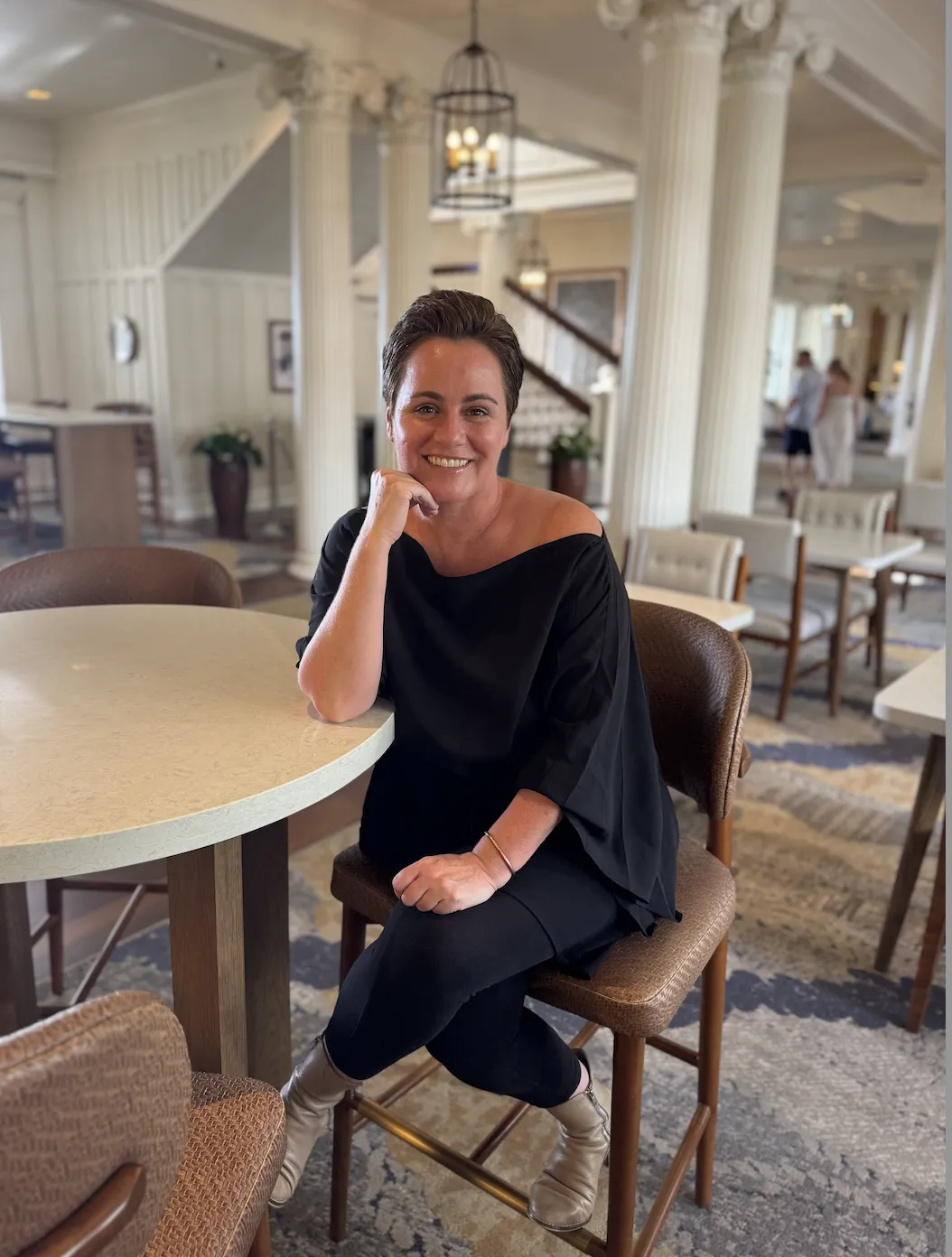Soulful Success Starts Here
Elevate Purpose.
Embody Peace.
Expand Prosperity.

About Me
Hi! I'm Vanessa
A Soulful Success Coach, mentor, and collaborative leader devoted to helping women rise into their next season of purpose, prosperity, and peace. For more than three decades, I’ve worked with thousands of people, led teams, mentored leaders, and pioneered communities across the world.
The people who have always been drawn to our leadership were growth-oriented dreamers — visionaries who knew they were made for more. They’re my people. They’re the women who want to create expansive success — not the kind that costs their peace, but the kind that multiplies it. They’re courageous enough to build, bold enough to lead, and wise enough to know it’s time to do it differently.
At the centre of my circle is my husband, Andrew — the hero of my heart — and our four feminine and fierce teen and young adult daughters. We’ve lived in three countries, and pursued big vision — often at the expense of my own body and soul. So when I say I see you, I truly do. I know what it feels like to carry both deep purpose and deep fatigue… to want to build something extraordinary without losing yourself in the process.
Whether we meet through coaching, community, or collaboration, every experience I create is designed to awaken what’s already within you — the part that’s been quietly preparing to take center stage. Because the next version of your success isn’t something you chase — it’s something you remember.
Does any of this SOUND FAMILIAR?
You’re visionary, driven, and devoted — but lately, you’re noticing a shift, even an invitation, to something more substantial
You sense a reinvention rising, but need space, strategy, and soulful support to bring it to life.
You’ve built something meaningful, but you’re craving a simpler, more sustainable rhythm because success can overwhelm.
You’re not meant to choose between peace and prosperity.
You’re here to embody both
Let's Collaborate Together!
Partnership Possibilities

The Soulful Success Sisterhood
Imagine a circle of women who want you to win. This community gathers the bold, the brave and the becoming.. This is for ambitious women ready to expand their influence, income, and impact.
Join a Sisterhood where you'll learn weekly Soulful Success Practices, showcase your wins, and collaborate boldly.
Connect with women who champion each other’s growth and celebrate success loudly. These are the days to learn from one another.
Step in, evolve your skills, expand your confidence, and create the life, business or ministry that you’re meant to lead.

Soulful Success Coaching
I guide women in high-growth seasons to increase their energetic, emotional, and strategic capacity — so they can align their current roles, businesses, or creative callings with the next version of who they’re becoming.
Private coaching experiences for women ready to redefine success and build sustainable structures for expansion.
We merge soul work with strategy — helping you move from chaos to clarity, from striving to flow, from success that drains to success that sustains..
Rediscover your rhythm, rewrite your story, and reignite your purpose.

Direct Selling Partnership
We’re passionate about this industry because it changes lives, empowers ordinary people, and rewards effort.
We feel called to change the narrative — to show that direct selling is about connection, growth, and making an extraordinary impact (not built on hype or shortcuts).
It is within this industry that ordinary people can build something extraordinary in a simple, sustainable and scalable way, and create compounding impact and income.
If you’re open, curious, and ready to explore a world where millions of people are creating meaningful opportunities, we’d love to connect with you.

FastTrack Digital Partnership
I’m proud to collaborate with Fast Track Digital, a Father/Daughter business to fund our eldest daughter’s dream to live, work, and travel in Canada. This is how we’ve raised our daughters — to build resilience, own their dreams, and innovate their future..
As a partner with FastTrack Digital, I help women and teams systemize success through automation, organization, and authentic digital connection.
These tools simplify your structure so your message, mission, and momentum can flow — giving you back time for what truly matters. Because systems should serve your soul, not steal your peace.

Sovereign Saints (Launching Soon)
Andrew and I are so excited to be launching a movement and ministry for Christ-followers all over the world who are boldly in pursuit of impact, influence and income that will see the Kingdom Come - on earth as it is in heaven
God is raising a generation unafraid to build both legacy and livelihood — Kingdom leaders shaping culture and calling through their work.
After 25 years of ministry, our greatest fruit is seeing these leaders multiply impact across the world.
Our kingdom mission remains the same (but even more specialised). We exist to champion, celebrate, and care for those on the front lines of impact and influence..

Speaking Requests
I absolutely love communicating, sharing, and speaking — there’s nothing like the energy in the room when people are gathered for inspiration and activation..
I thrive on preaching revelation that spark curiosity, conviction and calling, and watching individuals light up as they recognize their own God-given gifts, grace and genius.
Each year, I take on a limited number of invitations, ensuring I can give my full focus, passion, and grace to every audience. I also coach communicators to help them explore their own voice and signature messages.
Let’s explore together if there’s alignment between what I offer and the vision that you’re carrying.. Please contact me on the details below.
The Soulful Success Promise
When you partner with me, you’ll learn how to:
Build profitable systems and soul-aligned strategies that amplify your income and your influence.
Lead with vitality, vision, and feminine power — without the cycle of exhaustion and burnout.
Design a business and life that reflect who you’re becoming, not just what you’re achieving.
In any endeavour that we partner together, it is my intent that you’ll experience transformation in three dimensions:
Soul Alignment
Learn to live and lead in sync with your highest values — so your success feels authentic, not exhausting.
Strategic Clarity
Create systems, habits, and structures that scale your impact and income — with simplicity and flow.
Sustainable Vitality
Rebuild your energy and rhythm so you can lead and live from overflow — not depletion
Every space I hold is an echo chamber for your own potential — what’s been waiting within you finally finds its expression. Because the earth has been waiting for your evolution
Client Reflections
“She blends wisdom, warmth, and strategic insight — helping you lead with both purpose and peace.”
“Vanessa helps you see success differently — with soul, structure, and sustainability.”
“Working with her gave me the courage to slow down and the clarity to speed up.”
Let’s Begin
You don’t have to choose between success and soul health. You can expand your impact, income, and influence while staying anchored in your values, vitality, and vision.
Let’s start your Soulful Success story — together.
Explore our partnership possibilities by clicking through to the one that most interests you:
Hoyes Global + the Direct Selling Opportunity
Fast Track Digital to align your online presence
Book a Discovery Call in one of those links
Or feel free to contact me on the details below
Cheers to the wild and wonderful days we are living in!.